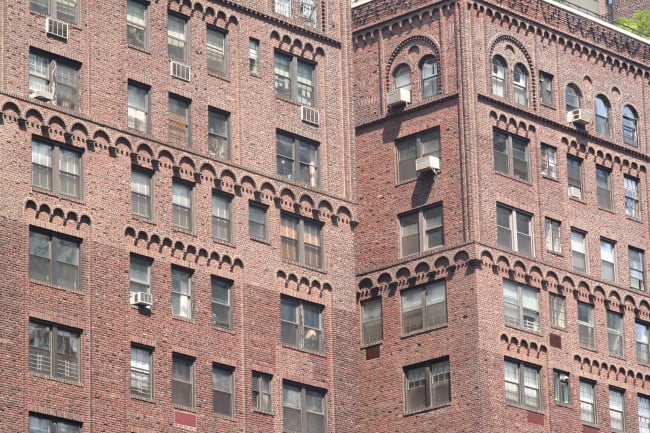Before you buy: 16 questions to ask about a NYC co-op or condo building
- Ask in advance what appliances and fixtures are included to avoid unwanted surprises
- It's a good sign if your bank has previously extended mortgages to buyers in the building

You don’t want to find out too late that you are not getting what you expected.
James Andrews/iStock/Getty Images Plus via Getty Images
There are important questions you need to ask before buying a co-op or condo in New York City. Some questions will relate to the culture or vibe of the building but others will be about restrictions placed on you by the board or the conditions of the seller.
A buyer’s broker would be primed to find out the answers all these questions before you make an offer—but you need to know what to ask.
[Editor's note: A previous version of this post was published in February 2023. We are presenting it again with updated information for April 2023.]
Down payment requirements are generally made known in the listing but you don’t want to find out after the deal sheet is issued, that the board doesn’t allow dogs or won’t let you refinance for two years, especially if these conditions are an essential part of your offer. Here are the questions to get answered.
1. What’s the down payment requirement for the building?
Most NYC apartment buildings require at least 10 percent of the apartment price as a down payment. In NYC, this is similar to most bank requirements, so if you're getting a mortgage to buy a condo, you may need to put that much down anyway. Co-ops often have steeper requirements—asking you to provide at least 20-25 percent as the down payment.
Some particularly restrictive co-ops may require more—up to 50 percent of the asking price as a down payment. Another requirement might be post-closing liquidity, which is how much you’ll have available in the bank once you’ve closed. Ask your broker what the requirements are. To avoid being rejected by the co-op board, you’ll need to meet or exceed these requirements.
2. What’s the pet policy?
Management companies and co-op boards are more likely to allow cats than dogs, but there are some buildings that ban both. Sometimes the rules are more nuanced and place restrictions on the size and breed of your dog. This is usually because they don’t want the liability if someone gets hurt.
All this means: If you see someone walking out of the lobby with a dog, don’t just assume your dog will be allowed. Andrea E. Wernick, an agent at Coldwell Banker Warburg, suggests asking about the specific rules if you have a pet because some buildings fine you if you don’t abide by them.
3. Is there a flip tax?
A flip tax—or more accurately a transfer fee–is usually paid by the seller at the point of sale and is designed to bring in revenue for the building. It can be a flat fee, based on share ownership or it can be a percentage of the sale price. Most flip taxes in New York are in the range of 1 to 5 percent of the sales price, with 2 or 3 percent being the most common.
You want to know about a flip tax early in the buying process. The flip tax may be a part of your negotiations—depending on how competitive the market is, the responsibility for paying the fee can be shifted from seller to buyer or the other way around, so it’s important to be clear about expectations before the deal sheet is sent out.
4. What appliances and fixtures are included?
Early and transparent conversations about what fixtures and appliances are excluded from the sale are an important part of the buying process. Attorney Stephen W. Allen, partner at Romer Debbas, recently worked on a sale where the deal sheet did not disclose that lighting fixtures were excluded. So when the contract identified chandeliers, sconces, and other fixtures to be removed from the apartment, it raised questions for the buyer about what else the seller was not being upfront about.
“When the deal points aren’t clearly communicated and don’t transfer from the offer conversations into the deal sheet, it can get contentious,” Allen says. It might give a buyer a foothold to renegotiate and it leaves a bad taste in everyone’s mouth, he adds.
Dorothy Schrager, a broker at Coldwell Banker Warburg, recently had a deal fall apart because the seller wasn't transparent about the quality of the flooring beneath the carpet. "We were told the floors were in such bad shape they all had to be ripped out. The deal blew up and the seller wasn’t willing to compensate for the work needed," she says.
5. What’s the building's reserve fund?
You want to know that the building is in good financial health—is there money in reserve for capital improvements or funds available if emergency repairs are needed? You may not always get this information during the offer stage but you will get it before you sign the contract. It is information your attorney will be looking for during the due diligence (after the deal sheet is sent out and before the contract is signed.)
If you are borrowing to pay for the apartment, one option is to ask your lender if they have recently lent to buyers in the building. “If you find out whether a lender can lend in the building, it gives you a bit of empowerment,” Allen says.
If you know the building is on the bank’s approved lender list and there’s a competing buyer, one way to make yourself more attractive to the seller is to make your offer non-contingent, Allen says. If you know the building meets your lender’s requirements you can be more comfortable with this path. Allen says sellers will “salivate over” these types of offers—even if your offer is slightly lower—because “they know that once the contract is signed it’s more or less a done deal that they’ll close.”
6. What’s the owner-occupied ratio?
Lenders don't want to see too many sublets or non-owner occupied apartments in the building in which you want to buy. So if you are taking out a mortgage this is an important detail. Co-ops often have restrictions on sublets but many buildings relaxed their rules on this during the past two years to accommodate owners.
Your attorney will look into this during the due diligence but another way to approach this is to find out if your lender has extended mortgages to others in the building. As with the question of the building’s reserve fund, if your lender has recently approved purchases in the building you can be more confident this issue won’t present a problem as you go to close.
7. Who is the seller—and do they have authority to sell?
You want to make sure the person who is being presented to you as the seller is indeed the seller and has the authority to sell. Allen says sometimes a seller is a surviving spouse or the son or daughter of someone who has died.
“If there are multiple owners you want to make sure they are all in the picture,” Allen says.
If the property has not gone through probate they will not be allowed to sell. And that means you can forget all those well planned deadlines and the scheduled closing date—Allen says probate courts are currently backed up nine to 12 months which could sink your deal.
8. Is a washer/dryer allowed?
Having a washer/dryer in your apartment is a goal for many—and for good reason. However, be aware of some apartments where there is a washer/dryer in the apartment that has been grandfathered in,” Schrager says.
She recently had a situation where the washer/dryer was in the apartment but the buyer was told as they went to close that they would have to remove it. “Buildings can be strict about rules regarding installation, so better to know beforehand,” she says.
9. Are assessments expected?
You will want to ask about maintenance or common charges and these costs are typically easy to find out. However, you will also want to know if there is a special assessment planned for a specific project. Christopher Totaro, sales director and agent at Coldwell Banker Warburg, suggests asking specifically when the last Local Law 11 inspection or façade work was completed, and when the elevator was last replaced.
“A building with low monthlies might seem like a bargain, but if it needs a façade restoration or a new boiler, the low monthlies may end up costing you more than you had planned in the near future,” Totaro says.
10. Is the building facing Local Law 97 penalties?
All co-op and condo buildings of more than 25,000 square feet must comply with carbon emission rules under Local Law 97. If your apartment building has five stories or more, it will likely fall in this category. You may be encouraged if you’ve seen a high energy efficiency grade posted in the building’s lobby, but it’s important to understand this: Upgrades to reduce emissions may still be required even if the building has an A or B efficiency grade. These retrofits to switch to electric instead of fossil fuels can be expensive.
You can find out if your building is facing penalties for exceeding its emission allowance by plugging the address into the NYC Accelerator’s building energy snapshot tool. NYC Accelerator is a city-sponsored organization with the goal of helping building owners meet the city’s emission targets. Penalties will begin in 2025 and each building’s carbon emission allowance will get incrementally smaller in the coming years so by 2050 emissions will be reduced by 80 percent.
You’ll want to make sure the board is proactively seeking ways to reduce emissions by switching out mechanical systems from fossil fuels to renewable and electric power sources. You'll also want to see a plan in place to pay for the upgrades. You'll find this information in the building's financial statement.
11. Are there refinancing restrictions?
In some cases, a co-op won't let you refinance unless you've been in the building for two years. This could present problems if you're planning to make an all-cash offer but then refinance later.
12. What are the rules about who can live in the apartment?
If you buy the co-op as a pied-à-terre, which is allowed in some cases, but you want a relative to live there while you are out of town each winter, you may not have that flexibility based on the wording in the proprietary lease. This is something you’ll want to check before you make an offer.
Many buildings need you to register who is going to live in the apartment. “In a co-op and in some condos, the person that is going to live in an apartment must submit financials and recommendation letters and be interviewed as well,” Wernick says.
13. What's the policy on renovations?
If you’re buying a place that needs work, you will need to get building approval. If you want to start renovating right after closing, this is an important question.
“Every building has different rules on how many apartments can renovate at one time,” Wernick says.
14. Are incoming shareholders responsible for window repairs?
As a co-op buyer it’s important to establish who is responsible for window repair and replacement. You’ll find this in the bylaws or proprietary lease.
Sometimes there is a window policy requiring an incoming shareholder to remediate or replace the windows where necessary. This might mean a buyer will want to negotiate a closing credit if the windows are in bad shape.
15. Who manages the building?
With some online research and some visual cues, you can identify how the building is run. Look at the basement, the laundry room, and the mail room to see if they are clean—a sign of good management. Check for violations via public city data. Property management firms vary from large companies with streamline operations to smaller independent companies with more nuance. In some cases a building may be self managed.
The property manager can help you with questions about whether maintenance increases are expected or assessments are scheduled. You can also ask the property manager about recent inspections, or outstanding building violations.
16. What’s the broker commission?
This is typically a question for sellers who are the ones paying the commission. However, it’s still a good question to ask. “In the buying process, it is a good bargaining tool that agents use by lowering their commission to make a deal work,” Wernick says.
You Might Also Like




























